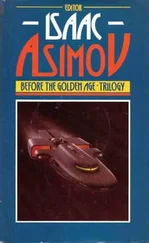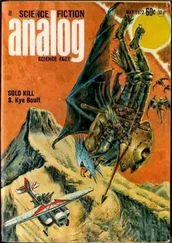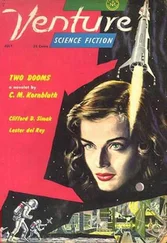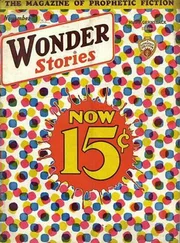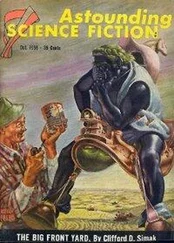Clifford Simak - The Fellowship of the Talisman
Здесь есть возможность читать онлайн «Clifford Simak - The Fellowship of the Talisman» весь текст электронной книги совершенно бесплатно (целиком полную версию без сокращений). В некоторых случаях можно слушать аудио, скачать через торрент в формате fb2 и присутствует краткое содержание. Жанр: Фантастика и фэнтези, на английском языке. Описание произведения, (предисловие) а так же отзывы посетителей доступны на портале библиотеки ЛибКат.
- Название:The Fellowship of the Talisman
- Автор:
- Жанр:
- Год:неизвестен
- ISBN:нет данных
- Рейтинг книги:5 / 5. Голосов: 1
-
Избранное:Добавить в избранное
- Отзывы:
-
Ваша оценка:
- 100
- 1
- 2
- 3
- 4
- 5
The Fellowship of the Talisman: краткое содержание, описание и аннотация
Предлагаем к чтению аннотацию, описание, краткое содержание или предисловие (зависит от того, что написал сам автор книги «The Fellowship of the Talisman»). Если вы не нашли необходимую информацию о книге — напишите в комментариях, мы постараемся отыскать её.
The Fellowship of the Talisman — читать онлайн бесплатно полную книгу (весь текст) целиком
Ниже представлен текст книги, разбитый по страницам. Система сохранения места последней прочитанной страницы, позволяет с удобством читать онлайн бесплатно книгу «The Fellowship of the Talisman», без необходимости каждый раз заново искать на чём Вы остановились. Поставьте закладку, и сможете в любой момент перейти на страницу, на которой закончили чтение.
Интервал:
Закладка:
"If the manuscript is lost while being carried to Oxenford, what then?" asked Duncan.
"That is a chance that must be taken. Although I know you would guard it with your life."
"So would anyone," said Duncan.
"It's a precious thing," said His Grace. "Perhaps the most precious thing in all of Christendom. Upon those few pages may rest the future hope of mankind."
"You could send a copy."
"No," said the archbishop, "it must be the original. No matter how carefully it would be copied, and at the abbey we have copyists of great skill, the copyist might miss, without realizing it, certain small characteristics that would be essential in determining if it's genuine or not. We have made copies, two of them, that will be kept at the abbey under lock and key. So if the original should be lost we still will have the text. But that the original should be lost is a catastrophe that bears no thinking on."
"What if Bishop Wise can authenticate the text, but raises a question on the parchment or the ink? Surely he is not also an expert on parchments and on inks."
"I doubt," the archbishop said, "that he'll raise such questions. With his scholarship, he should know beyond all question if it is genuine from an examination of the writing only. Should he, however, raise those questions, then we must seek another scholar. There must be those who know of parchments and of inks."
"Your Grace," said Duncan's father, "you say there have been theories advanced about the Desolated Land, about the motive and the reason. Do you, perhaps, have a favorite theory?"
"It's hard to choose among them," the archbishop told him. "They all are ingenious and some of them are tricky, slippery of logic. The one, of all of them, that makes most sense to me is the suggestion that the Desolated Lands are used for the purpose of renewal-that the evil forces of the world at times may need a resting period in which to rededicate their purpose and enrich themselves, recharging their strength. Like a church retreat, perhaps. So they waste an area, turning it to a place of horror and desolation, which serves as a barrier to protect them against interference while they carry out whatever unholy procedures may be necessary to strengthen them for another five centuries of evil doing. The man who propounded this theory sought to show a weakening of the evil done for some years preceding the harrying of a desolated land, and in a few years after that a great increase in evil. But I doubt he made his point. There are not sufficient data for that kind of study."
"If this should be true," said Duncan, "then our little band, if it trod most carefully and avoided any fuss, should have a good chance to pass through the Desolated Land unnoticed. The forces of Evil, convinced they are protected by the desolation, would not be as alert as they might be under other circumstances, and they also would be busy doing all the things they need to do in this retreat of theirs."
"You might be right," his father said.
The archbishop had been listening silently to what Duncan and his father had been saying. He sat with his hands folded across his paunch, his eyes half closed, as if he were wrestling with some private thought. The three of them sat quietly for a little time until finally His Grace stirred himself and said, "It seems to me that more study, really serious study, should be made of this great force of Evil that has been loose upon the world for uncounted centuries. We have responded to it, all these centuries, with horror, explaining it by thoughtless superstition. Which is not to say there is no basis for some of the tales we hear and the stories that are told. Some of the tales one hears, of course, are true, in some cases even documented. But many of them are false, the tales of stupid peasants who think them up, I am convinced, to pass off idle hours. Ofttimes, other than their rude horseplay and their fornications, they have little else to amuse themselves. So we are engulfed in all sorts of silly stories. And silly stories do no more than obscure the point. What we should be most concerned with is an understanding of this Evil. We have our spells and enchantments with which to cast out devils; we have our stories of men being changed into howling dogs or worse; we believe volcanoes may be the mouths of Hell; not too long ago we had the story of some silly monks who dug a pit and, descending into it, discovered Purgatory. These are not the kinds of things we need. What we need is an understanding of Evil, for only with an understanding of it will we have some grounds upon which to fight against it.
"Not only should we get ourselves into a position to fight it effectively for our own peace of mind, for some measure of freedom against the indignity, injury and pain Evil inflicts upon us, but for the growth of our civilization. Consider for the moment that for many centuries we have been a stagnant society, making no progress. What is done each day upon this estate, what is done each day throughout the world, does not differ one iota from what was done a thousand years ago. The grains are cut as they always have been harvested, threshed as they always have been threshed, the fields are plowed with the same inefficient plows, the peasants starve as they have always starved…."
"On this estate they don't," said Duncan's father. "Here no one starves. We look after our own people. And they look after us. We store food against the bad years and when the bad years come, as they seldom do, the food is there for all of us and…"
"My lord," said the archbishop, "you will pardon me. I was speaking quite in general. What I have said is not true on this estate, as I well know, but it is true in general."
"Our family," said Duncan's father, "has held these lands for close on ten centuries. As holders of the land, we have accepted the implicit responsibility…"
"Please," said the archbishop, "I did not mean your house. Now may I go on?"
"I regret interrupting you," said Duncan's father, "but I felt obliged to make it clear that no one goes hungry at Standish House."
"Quite so," the archbishop said. "And now to go on with what I was saying. It is my opinion that this great weight of Evil which has borne down upon our shoulders has worked against any sort of progress. It has not always been so. In the olden days men invented the wheel, made pottery, tamed the animals, domesticated plants, smelted ore, but since that first beginning there has been little done. There have been times when there seemed a spark of hope, if history tells us true. There was a spark of hope in Greece, but Greece went down to nothing. For a moment Rome seemed to hold a certain greatness and some promise, but in the end Rome was in the dust. It would seem that by now, in the twentieth century, there should be some sign of progress. Better carts, perhaps, and better roads for the carts to run on, better plows and a better understanding of how to use the land, better ways of building houses so that peasants need no longer live in noisome huts, better ships to ply the seas. Sometimes, I have speculated on an alternate history, an alternate to our world, where this Evil did not exist. A world where many centuries of progress have opened possibilities we cannot even guess. That could have been our world, our twentieth century. But it is only a dream, of course.
"We know, however, that west of us, across the Atlantic, there are new lands, vast new lands, so we are told. Sailors from the south of Britain and the western coasts of Gaul go there to catch the cod, but few others, for there are few trustworthy ships to go in. And, perhaps, no great desire to go, for we are deficient in our enterprise. We are held in thrall by Evil and until we do something about that Evil, we will continue so.
"Our society is ill, ill in its lack of progress and in many other ways. I have also often speculated that the Evil may feed upon our misery, grow strong upon our misery, and that to insure good feeding it may actively insure that the misery continues. It seems to me, too, that this great Evil may not always have been with us. In earlier days men did make some progress, doing those few things that have made even such a poor society as we have now possible. There was a time when men did work to make their lives more safe and comfortable, which argues that they were undeterred by this Evil that we suffer or, at least, not as much deterred. And so the question, where did the Evil come from? This is a question, of course, that cannot now be answered. But there is one thing that to me seems certain. The Evil has stopped us in our tracks. What little we have we inherited from our ancient forebears, with a smidgen from the Greeks and a dab from Rome.
Читать дальшеИнтервал:
Закладка:
Похожие книги на «The Fellowship of the Talisman»
Представляем Вашему вниманию похожие книги на «The Fellowship of the Talisman» списком для выбора. Мы отобрали схожую по названию и смыслу литературу в надежде предоставить читателям больше вариантов отыскать новые, интересные, ещё непрочитанные произведения.
Обсуждение, отзывы о книге «The Fellowship of the Talisman» и просто собственные мнения читателей. Оставьте ваши комментарии, напишите, что Вы думаете о произведении, его смысле или главных героях. Укажите что конкретно понравилось, а что нет, и почему Вы так считаете.

